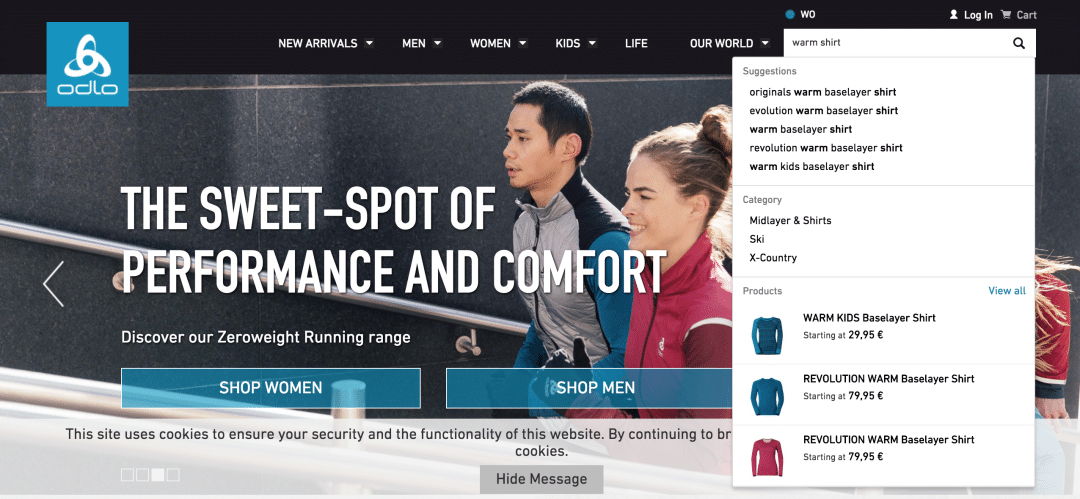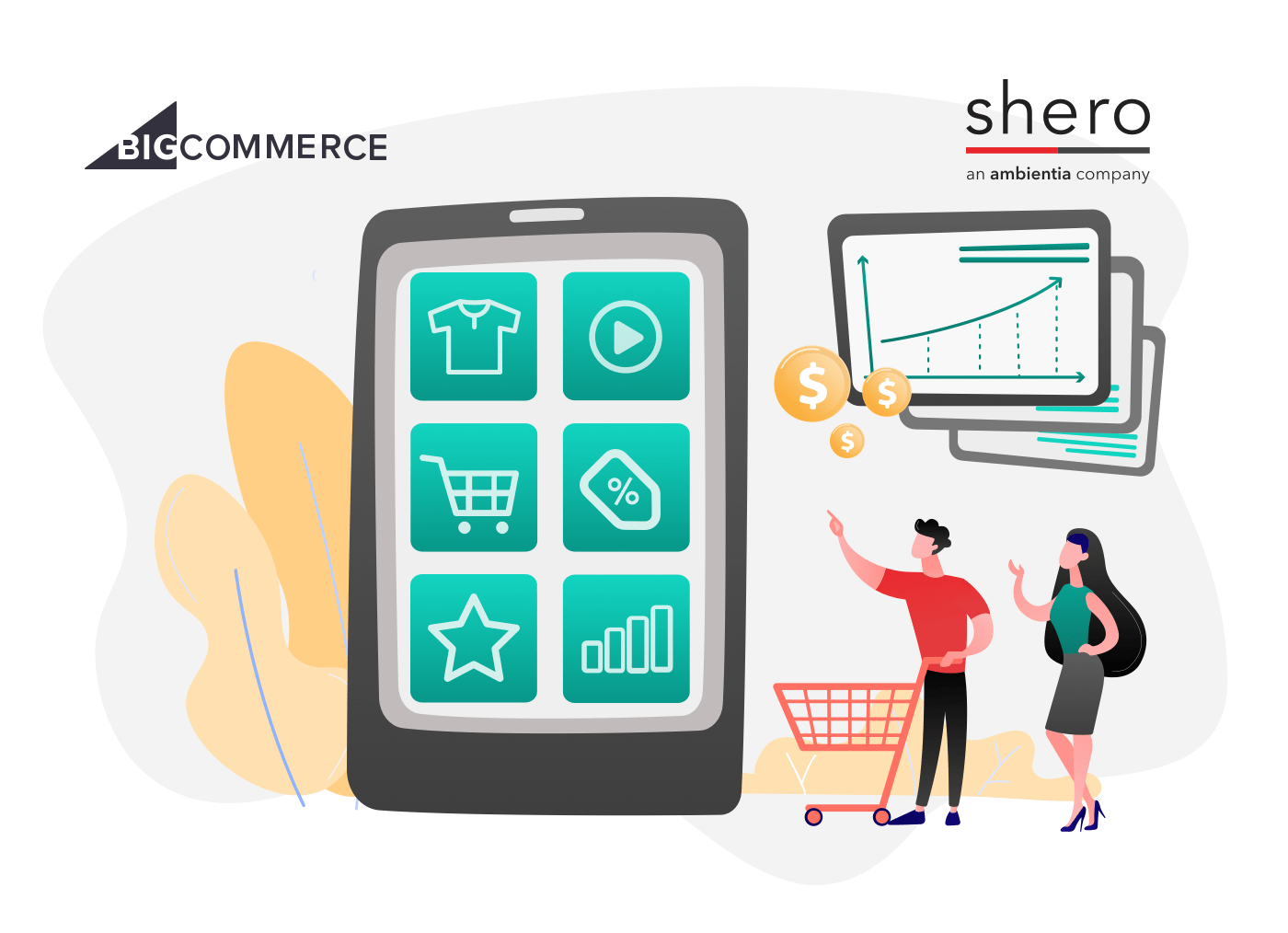For the average online shopper, it’s easy not to notice how much ecommerce has evolved over the years, or how that evolution is continually gathering pace. We can all appreciate that online shopping is a far less frustrating experience than it was just a few years ago, but for the majority of shoppers, the technological changes that are taking place behind the scenes are invisible. The adoption of natural language processing (NLP) and machine learning technologies is one of the key drivers of change in ecommerce today, and the impact that these technologies are having on customer experience is both far-reaching and powerful. In this article, we examine some of the key ways that NLP and machine learning are being used within ecommerce, to drive increased sales and improved conversion rates.
Smart on-site search
Online shopping is now part and parcel of everyone’s life, and something we have quickly come to take for granted. Alongside the rapid adoption of ecommerce, the growth of smartphone usage has been exponential, with more than two-thirds of the UK population now owning a smartphone. As mobile devices overtake laptops as the preferred device for accessing the Internet, it’s vital that ecommerce sites adapt, to satisfy the needs of time-pressed consumers who want to shop from their phones or tablets. This has pushed on-site search to the forefront of retailers’ attention, as search has become the main navigation tool for many online shoppers, replacing cumbersome menu-driven navigation structures.
Historically, on-site search has focussed on keyword matching. This has often produced results that were less than optimal, with seemingly random results generated for more descriptive queries, or even no results at all. That’s all changing though, as ecommerce retailers look to NLP-driven site search engines to power their on-site search. NLP search is a game-changer in ecommerce, because it has the capability to base results on semantics, rather than keywords, which produces more relevant results. This smart, meaning-based approach to search is coupled with machine learning abilities, to create an engine that becomes smarter over time, learning more and more about query intent, concept extraction and shopper behaviour. The data mined from an NLP search engine is ploughed back into the system to improve future search performance, but it can also be used in other areas of ecommerce operations, to drive additional benefits.
Klevu are a great example of this, who are well known for using natural language processing within their search engine and also for their predictive search solution.
Product recommendations
Product recommendations represent a very important part of an ecommerce store today, particularly for merchants with larger catalogs. Product recommendation blocks are used across all page templates, primarily for up-selling and cross-selling.
The immediate benefits of smarter product recommendations is improved customer satisfaction and improved average order value and conversion rates, which leads to increased sales. The data derived from product recommendations has huge value too. By analysing customer behaviour on a store, understanding much more about shopper intent, and looking at aggregate data for products viewed and similar customers, it is possible to present a highly personalised experience to each individual shopper.
As an example, if a customer searches a fashion website for ‘red dresses’, machine learning technology could enable the store to dynamically recommend highly targeted products to that customer, such as red shoes or a matching bag, even if the recommended products don’t actually contain the keyword ‘red’. This extraction of meaning and context means that the needs and desires of customers can be interpreted in more detail and more accurately than ever before.
This can also be applied to groups of customers and across the store based on a larger sample of customers. Companies like Peerius, NOSTO and RichRelevance use machine learning to enhance the shopping journey and cover a large proportion of the top online retailers globally. Many of these providers also use the data to continue to provide recommendations via abandoned purchase emails, Facebook remarketing and behavioural popups etc.
Promotions and incentives
Continuing the theme of using machine learning to better understand customer behaviour, it is possible to use shopping data to market directly to customers, outside of the immediate shopping journey. Customer retargeting and abandoned cart marketing have been a feature of the ecommerce landscape for quite some time now, but the increasing use of machine learning (as mentioned above) means that the techniques used by marketers will become much more sophisticated in future.
With abandoned carts, marketers generally resort to a simple email, usually offering a discount or coupon for the item that was in the abandoned cart. With more data available about the specific shopping instance that resulted in the abandoned cart, as well as data from previous shopping instances from the same customer and other customers, the merchant can produce an incentive that is much more likely to generate a positive response.
Understanding that the reason a cart is abandoned may not simply be about price could influence the way that a retailer reaches out to a shopper, and could have a material impact on the store’s bottom line.
The humble newsletter is another target for increased personalisation, driven from NLP-based analysis of customer search behaviour. Many retailers simply send out a standard email newsletter to every subscriber on a weekly basis. Using customer journey data, query history, search path analysis and other data, allows retailers to send uniquely personalised marketing emails to each individual customer, taking into account previous purchases, customer behaviour at specific times of the year, recent website visits and much more.
The more accurately the retailer can predict the customer’s desires and intentions, the more likely that retailer is to make a sale. If all of this anticipatory analytics seems a little far-fetched, consider, if you will, that Amazon has apparently filed a patent recently for ‘anticipatory shipping’, whereby they could potentially pack and ship an item before the customer has actually completed the order.
Predictive analytics
Much of the focus of NLP and machine-learning technology in ecommerce has been on improving the customer experience through more relevant search results, better merchandising and greater levels of personalisation. However, the benefits to be reaped by these smart ecommerce engines go way beyond the front end of any ecommerce store. Data mining is becoming a central part of enterprise-level ecommerce strategies, delivering commercial insights across all areas of a retail business.
At its simplest level, search data analysis can be used to identify best sellers and also poorly performing products. If a specific product is being searched for frequently but seldom purchased, data analysis can flag this up for investigation and corrective action. Taking things further, data mined from site search and customer journeys can be used for optimisation of inventory, to promote specific products or to research new product areas to move into. At the corporate end of the ecommerce scale, this type of analytics is driving developments in propensity modelling, where the likelihood to buy can be determined in an ever more accurate way, and sentiment analysis, which works to understand customer feedback and customer decision-making.
Machine learning, in the form of behaviour analytics, has long been used in the travel industry to provide dynamic pricing algorithms for websites offering flights and hotel accommodation. Whilst the same analytics processing could easily be used in online retail, it has not yet taken off in that sector, due to customer perceptions of unfairness. As predictive analytics gets smarter and smarter, it remains to be seen whether or not dynamic pricing has gone for good in the retail sector.
Conclusion
It’s clear to see that ecommerce technologies are becoming smarter and smarter. The take-up of NLP-based search is increasing dramatically, and it looks set to become the mainstream approach to site search in the very near future. As NLP search gains momentum and becomes widespread, its growth will inevitably draw attention to the marketing and operational possibilities that can come from superior analytics. Most merchants in the mid-level and enterprise-level bracket are also now using machine learning for product recommendations – which have become central to ecommerce.
—
Paul Rogers is an eCommerce / Digital Consultant based in London, UK. Paul has worked with merchants from all over the world, consulting primarily around Magento and overall growth strategy. Paul also consults with eCommerce search product, Klevu, focusing on their UK market.





